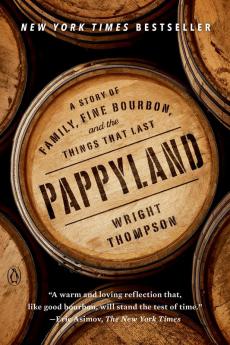This Book is Out of Stock!
English
Paperback
₹599
₹1350
55.63% OFF
(All inclusive*)
Delivery Options
*COD & Shipping Charges may apply on certain items.
Review final details at checkout.
Looking to place a bulk order? SUBMIT DETAILS
About The Book
Description
Author
<b>The <i>New York Times</i> bestseller! <p/>A warm and loving reflection that like good bourbon will stand the test of time. --Eric Asimov <i> The New York Times <p/></i>Bourbon is for sharing and so is <i>Pappyland</i>.<i>--The Wall Street Journal</i> <p/>The story of how Julian Van Winkle III the caretaker of the most coveted cult Kentucky Bourbon whiskey in the world fought to protect his family's heritage and preserve the taste of his forebears in a world where authenticity like his product is in very short supply.</b> <p/>Following his father's death decades ago Julian Van Winkle stepped in to try to save the bourbon business his grandfather had founded on the mission statement: We make fine bourbon--at a profit if we can at a loss if we must but always fine bourbon. With the company in its wilderness years Julian committed to safeguarding his namesake's legacy or going down with the ship. <p/>Then he discovered that hundreds of barrels from the family distillery had survived their sale to a multinational conglomerate. The whiskey that Julian produced after recovering those barrels would immediately be hailed as the greatest in the world--and soon would be the hardest to find. Once they had been used up a fresh challenge began: preserving the taste of Pappy in a new age. <p/>Wright Thompson was invited to ride along as Julian undertook the task. From the Van Winkle family Wright learned not only about great bourbon but about complicated legacies and the rewards of honoring your people and your craft--lessons that he couldn't help but apply to his own work and life. May we all be lucky enough to find some of ourselves as Wright Thompson did in Pappyland.
*COD & Shipping Charges may apply on certain items.
Review final details at checkout.
₹599
₹1350
55% OFF
Paperback
Out Of Stock
All inclusive*
Details
ISBN 13
9780735221277
Publication Date
-30-05-2023
Pages
-256
Weight
-209 grams
Dimensions
-139x209x15.58 mm








